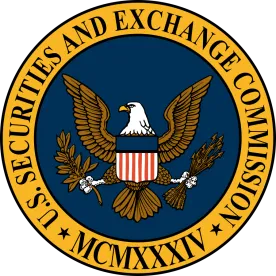Despite the COVID-19 pandemic, the Securities and Exchange Commission (SEC) and the Financial Industry Regulatory Authority (FINRA) have shown over the past several weeks that it’s business as usual. In early April, the SEC confirmed that it will not push back the June 30, 2020, deadline for compliance with the Regulation Best Interest Rule (Reg BI).
Reg BI
On June 5, 2019, the SEC adopted Reg BI, a new rule under the Exchange Act that establishes a standard of conduct for broker-dealers and natural persons who are associated persons of a broker-dealer (BD). Reg BI is aimed at improving investor protection by enhancing the BD’s obligations when making recommendations to a customer. Reg BI incorporates FINRA’s quantitative suitability obligation (that a series of recommended transactions are appropriate and not excessive), but applies the best interest standard, rather than a suitability standard, regardless of whether the BD exercises actual or de facto control over a customer’s account. The best interest standard is met by satisfying four obligations: Care, Disclosure, Conflict of Interest and Compliance. Thus, Reg BI incorporates and enhances principles that are found in Rule 2111, but disposes of the element of control that is found in Rule 2111.
FINRA’s Response
Currently, to demonstrate that a BD has violated its quantitative suitability obligation in situations commonly referred to as “churning,” one must prove that (1) there exists an element of control over the customer’s account by the BD, (2) the transactions were recommended by the BD, and (3) the level of trading was excessive and unsuitable in light of the customer’s investment profile.
Absent action by FINRA, a BD would be required to comply with both Reg BI and Rule 2111 when making recommendations to clients. In response to Reg BI, FINRA filed a proposed amendment with the SEC to, among other things, amend FINRA’s suitability rule (Rule 2111) to clarify which standard applies and to address inconsistencies with Reg BI. In large part, the proposed change provides that Rule 2111 will not apply to recommendations that are subject to Reg BI, and it removes the element of control from the quantitative suitability obligation.
FINRA’s proposal adds a new paragraph, paragraph .08, to FINRA Rule 2111 Supplementary Material, which provides that the rule shall not apply to recommendations that also are subject to Reg BI. Generally, a BD that meets the best interest standard will necessarily meet the suitability standard. Thus, compliance with Reg BI generally will result in compliance with Rule 2111.
However, to reduce the potential for confusion, FINRA’s rule change limits the application of Rule 2111 to circumstances where Reg BI would not apply. FINRA, however, does not propose eliminating the suitability rule because it applies broadly to all recommendations to customers, whereas Reg BI applies only to recommendations to “retail customers” or natural persons to further personal, family or household purposes. Accordingly, FINRA’s suitability rule still is needed for and applicable to entities and institutions, such as pension funds, small business owners and charitable trusts.
The proposed modification also changes the quantitative suitability obligation under FINRA Rule 2111.05(c) by removing the element of control that currently must be proved to demonstrate a violation. Under FINRA’s current rule, a BD must have actual or de facto control over a customer account for the BD potentially to be liable for churning. Removing the control requirement is consistent with the Reg BI, which eliminates the control element from its Care obligation.
Advocates who favor the elimination of the control over a customer account requirement believe that by only focusing on the turnover rates, cost-to-equity ratios, and in-and-out trading, rather than also having to arbitrarily assess and weigh issues of de facto control over a customer’s account, will provide a more effective framework to determine churning violations. Investor protection advocates also argue that the proceedings and disciplinary actions will be streamlined because BDs will not be permitted to escape liability by minimizing the appearance of control.
Others, however, are concerned over the implications of the amendment and point out that the “control” element was codified in 2010 and is rooted in long-standing case law and precedent involving claims of excessive trading and churning. They argue that the control element is an essential due process protection of financial advisers and that removing the element of control over the account creates a slippery slope tantamount to burden shifting and ignores the actions of a sophisticated customer.
While FINRA maintains that the retention of the “recommendation” requirement offsets the implications of dispensing with the control requirement, others argue that it does not cure the problems raised, particularly where the recommendations are made to a customer who clearly has the sophistication and ability to evaluate and independently act on those recommendations.
In the wake of this proposal, several organizations have gone so far as to request that FINRA concurrently establish new hearing and enforcement sanctions guidelines that recognize a new offense that is far less serious than a churning offense, which requires proof of scienter and control among other things. Likewise, they point out that FINRA should ensure concurrently that hearing officers receive training on the significant differences in severity between churning on one hand and excessive trading on the other. Finally, some argue that FINRA should issue guidance on the statutory disqualification implications for violations of each of these distinct causes of action.
In sum, the proposed changes to FINRA’s suitability rules will clarify whether Reg BI or the suitability rules will apply, eliminating confusion and allowing firms to focus on compliance with the higher standards in Reg BI, when applicable. At the same time, the change will provide continued protection for customers who are not retail customers covered by Reg BI.
While removal of the control element from the quantitative suitability obligation will align the standard with the corresponding quantitative component of the Care obligation under Reg BI, it also is likely to open the door to allow for a strict quantitative measure of trading activity to be used as a litigation and enforcement mechanism against those registered persons who simply may be complying with investor requests or directions without any actual or de facto control over the customer’s accounts. Thus, the rule change could result in greater litigation and increased costs of defense for member firms, as claimants may be more inclined to submit potential claims even though the responsibility for the trades may lie on them.
If adopted, the proposed amendment to this rule will take effect on June 30, 2020.



 />i
/>i

